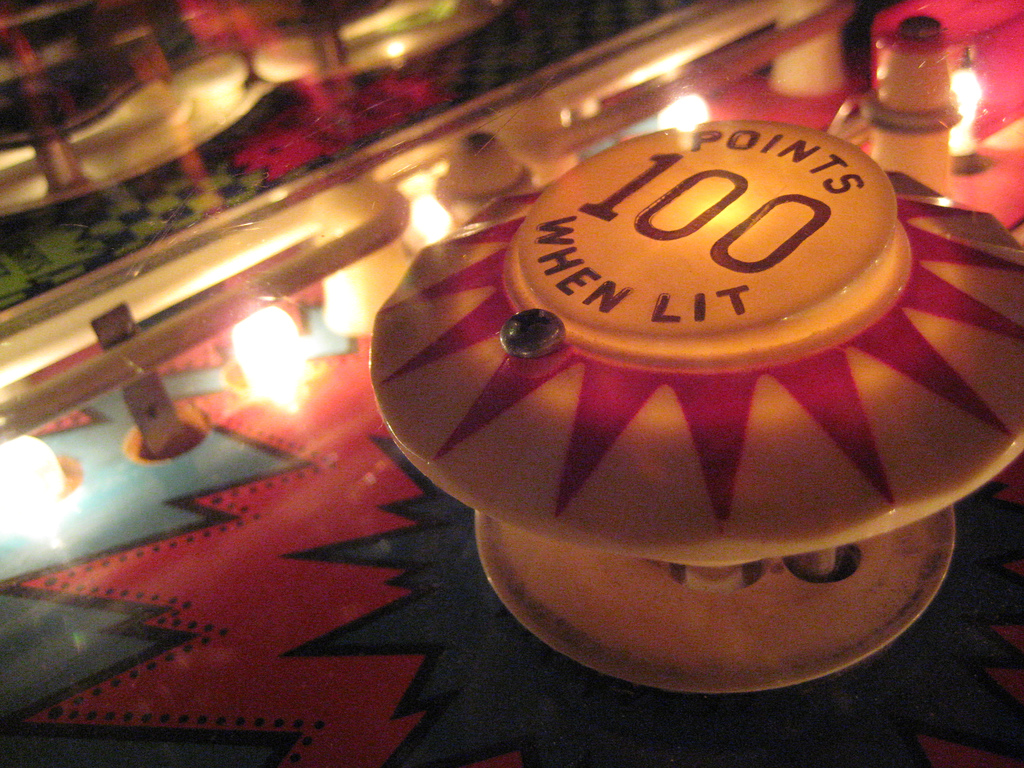Last week I introduced a tubing trip as a metaphor: A sunny day, a lazy river, a group of us floating on innertubes. Deciding to head for the cheap seats is the equivalent of paddling to the shore, getting out of the water, and hiking up the embankment. John Dehlin and associates have done a good job of cataloging some of the reasons people head for the shore. We’ll talk more about that next week.
Hiking up the embankment is difficult. I haven’t left, but I’m high enough up in the cheap seats to know what I’m talking about. Let’s take it in stages.
Stage 1
Most folks that start paddling for the bank never make it. They get turned around by one or more of these assertions:
1) Your doubt is a trial of your faith. It’s a test. Choose to have faith-and you pass the test.
2) The church is true. Because the church is true, there must be a reasonable explanation for whatever is worrying you. Be patient and wait-the answer will come eventually. In the mean time, find something else to do. Alternatively, see if FAIR had already come up with an explanation (and then find something better to do).
3) The church is true. If the issue you’re struggling with were important to your salvation, God would help you understand it. Since he hasn’t, it must not be important. Find something better to worry about.
4) The church is true. You could focus on your issue and resolve it, but it would require some effort. Since you know that you could resolve it if you tried, why waste the effort? Just put it on the shelf.
5) Remember, Mormon culture is not the gospel. Assume the problem is part of the culture.
6) Remember, the church is not the gospel. The church, after all, is run by men (literally); God is perfect, men aren’t. Assume the problem is a product of imperfect implementation.
7) There is a hierarchy of gospel principles. Identify the most important principles and draw a circle around them. What’s inside this circle represents the core of the gospel and is eternal truth. Draw your circle so that it excludes the issue that’s troubling you. Redraw the circle as needed.
These strategies are how we self-soothe, in a spiritual sense. They are the pinball bumpers of Mormonism-bumpers that will keep the ball in play for a lifetime, or as long as one keeps playing.
Once the circularity of these strategies becomes evident, though, the game becomes less entertaining.
Stage 2
Things get more serious in Stage 2:
1) Pay attention to your feelings. If you feel uneasy, unsettled, or anxious, then God is telling you through the Holy Ghost that what you are thinking (or reading, or hearing) is wrong (or subversive, or evil). Stop thinking it (or reading it, or listening to it).
Let’s apply this logic in a different context. Imagine growing up with a home with a stay-at-home mother that loved to cook. You believed she was the best book in the world. One day, when you’re older, you decide to test whether or not she really was the best by randomly sampling other food. If the food tastes different, strange, or fails to inspire memories of home and hearth, then you can conclude that your original assessment was correct (and that you should therefore stop eating anything but your mother’s cooking).
2) What are you doing wrong? Make a list. Come back when you’ve worked your way through the list.
Doubt is a symptom of spiritual sickness. Are you studying scriptures daily? Praying? Fasting? Attending all church meetings? Magnifying your church calling? Paying a full tithe? You get the idea.
3) What will others think?
If you keep this up, other members are going to start making assumptions. If you’re male, half the ward will assume you have a porn problem. Single? People will assume morality issues. Male, over 30 and not married? You must be struggling with same-sex attraction. Have a college degree? You must be one of the “learned” that think they are wise. Do you travel a lot? People will assume you’re having an affair. And the list goes on.
4) Now what?
The church is a buffet of spiritual truths. Isn’t it easier to let chefs do the cooking? You’re going to end up eating Kraft macaroni and cheese while your friends eat steak. Do you really think that you-just you-can answer life’s big questions on your own?
Stage 3
If you make it past Stage 2, then Stage 3 is where things really get difficult.
1) Do you want to be an outsider?
Inclusion in some groups is based on whether or not you want to be part of the group. Other groups base inclusion primarily on behavior. We base it on belief. When we use the phrase “follow the prophet,” we’re not talking about going anywhere-we’re talking about what you think. If you don’t believe what everyone else believes, then you’re an outsider. Do you really want to be an outsider?
2) We’ve got your family.
Families are forever. Don’t you want to be a part of that? On a more practical note, do you want to see your daughter get married?
3) We don’t trust you.
Members will assess your “countenance” and evaluate your spiritual “glow.” They’ll tell themselves that you’re unhappy. They may make plans to rescue you. The bottom line, though, is that people will begin to look at you like a household appliance that’s on the fritz. You’re not trustworthy anymore. People won’t say it out loud (at least not when you are around). But you’ll feel it. And that will hurt the most.
This is a difficult gauntlet to run. Wouldn’t it be easier to keep floating down the river?


This is an incredibly hard gauntlet to run…and one that I put off running through because it was easier in the moment to keep the ball in play (or keep floating down the river depending on the metaphor).
But once I took courage and went through these, I realized it was soooo nice on the other side.
The ‘stage 3’ you describe is, in my mind, a very difficult place to be, and the reason why ‘the cheap seats’ take such toughness.
Also, from my perspective, everything changes when you cease to take the river as your point of reference – and I think that often happens when you get the view from the embankment. You’re no longer an ‘outsider’ (as you no longer see ‘the world’ as “them”), and you no longer judge yourself by the standards of church culture, resulting in the dissonance described in stage 2.
You have my immense respect for occupying ‘the cheap seats’, Brent. Communities benefit hugely, I feel, from the perspectives of their ‘outsiders’ and prophets (the two should be much more closely identified than the latter term in LDS usage suggests!).
The difficulty of running this gauntlet is greatly eased by doing a simple thing: thinking! All of them from stage 1 to 3 fall to pieces under the glaring illumination of thinking.
@D. Michael Martindale
Could please explain your comment? I am not quite sure I understand what you mean? I am “thinking” but still not understanding.
Personally, I feel that every member goes through stages 1 to 3. I also feel that by “thinking” one is slowly guided through stages 1 to 3. I feel that this post is one of hte most relevant to members of the church who actually do ‘think.’ As such, I would be very interested to hear more about how stages 1 to 3 fall apart “under the glaring illumination” of “thinking?”
Short of taking each point step-by-step, what I mean is that each point is an issue only if someone doesn’t think objectively about it. Each of them has nothing to do with logic. They’re all emotional blackmail. If you can set aside your emotions in this (I know that’s hard to do), the points collapse under the cold light of logic and have no power of persuasion.
I mean, look at stage 2 step1. They blatantly admit it’s about feelings, not rationale.
I particularly like this one, Brent:
So true!
I do have a question about the ordering of the stages. I haven’t been through any of this really (other than some online discussion) so this is all second hand, but I wonder if for some people, depending on who is in their ward or in their family, they get the big stage 3 guns right out of the gate, or if things ever work backward (de-escalation?) I’m not sure exactly how it would work. I was just wondering if the stages might not always work, well, in stages.
Ziff, I feel like I’ve had first hand experience with all of the stages, but, for me, the progession has not been linear and I’ve found myself straddling several stages at once. Also, because we tend to compartmentalize so much — as humans and certainly as religious humans — sometimes it seems that you go through these phases with one principle until another collapses.